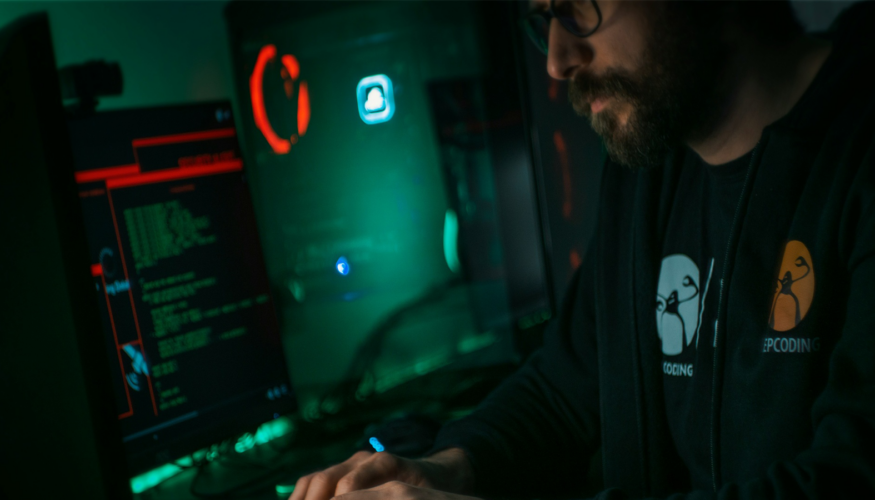A widespread cyberattack has sent shockwaves through the North American automotive industry, leaving thousands of car dealerships struggling to operate.
The breach, first reported on June 19, targeted CDK Global, a major provider of technology and digital marketing services to the automotive industry. CDK Global’s systems are integral to nearly 15,000 car dealerships’ day-to-day operations, streamlining everything from inventory tracking to vehicle acquisitions to financing to customer relationship management.
The attack forced CDK Global to shut down major components of its systems to contain the breach, causing significant operational disruptions. Dealerships reliant on CDKs platforms were left without the ability to access vital systems needed for sales, service appointments, and parts management. This incident underscores the vulnerability of the automotive sector, which increasingly relies on digital infrastructure for smooth operations.
How did this attack happen?
Early reports suggest that the attackers used sophisticated ransomware to encrypt data and demand payment for its release. While CDK Global has been tight-lipped about the specific ransom demands, sources indicate that the attackers are part of a well-known cybercriminal group with a history of targeting large enterprises.
As of press time on July 1, the situation remained fluid, with CDK Global and cybersecurity experts working around the clock to restore affected systems and mitigate further damage. In a “phased approach,” the company announced the restoration of some client software on June 29th but did not expect that to extend to all dealers until July.
What was the impact?
The immediate impact on car dealerships was extensive. Many reported significant disruptions to their daily operations, with many unable to process sales, secure payments, and schedule service appointments.
This led to thousands of frustrated customers and significant financial losses. Many dealerships found themselves resorting to manual, pen-and-paper processes, causing further inefficiencies and operational bottlenecks.
Cybersecurity experts also caution that, even after systems are back online, dealerships might face lingering challenges. These include information integrity issues—particularly if protected information like customer demographics and financial details are leaked on to the dark web—along with delays in implementing enhanced security measures that are capable of preventing future incidents.
In light of this cyberattack, businesses in the automotive sector and other industries should take proactive steps to protect themselves from similar threats. Here are seven practical strategies to enhance your cybersecurity posture:
- Implement robust data backup services. When ransomware strikes and businesses like CDK Global have their information stolen, there’s one surefire way to restore it: from a remote, regular, and redundant data backup stored separately from your main network. It’s also critical to test these backups regularly to ensure they can be restored effectively in case of an emergency.
- Enhance employee training. Human error remains a leading cause of cybersecurity breaches. Invest in regular training programs to educate employees about recognizing phishing attempts, using strong passwords, and following best practices for data security. Consider using simulated phishing attacks to test and reinforce employees’ ability to recognize malicious emails. This can provide a critical first line of defense against ransomware attacks.
- Deploy advanced threat detection tools. At CMIT Solutions, we pair traditional cybersecurity solutions like firewalls and anti-malware software with more advanced tools like AI-driven threat detection and traffic analysis. These can help identify and mitigate threats before they cause significant damage. Real-time monitoring and intelligent analytics can offer early warnings and allow for a quicker response to potential threats.
- Conduct regular security audits. Don’t wait for a devastating attack to assess the health of your cybersecurity protection. CMIT Solutions helps its clients periodically review and assess their IT infrastructure for vulnerabilities. We specialize in performing vulnerability testing and promptly addressing any identified weaknesses. Regular audits like these can beef up defenses and adapt to new and evolving threats.
- Activate multi-factor authentication (MFA) on every account. Require MFA for all employees accessing sensitive systems and data. MFA adds an extra layer of security, making it more difficult for attackers to gain unauthorized access. Even if passwords are compromised, MFA can prevent unauthorized users from exploiting this information and provide an extra layer of defense against ransomware attacks.
- Develop an incident response plan. You can better prepare for potential cyberattack incidents by developing a comprehensive response plan. Ensure all employees are familiar with the plan and conduct regular drills to test it. An effective response plan should outline clear roles and responsibilities, communication protocols, and steps to contain and mitigate the impact of an attack.
- Partner with a trusted IT expert. None of these steps are easy to implement on your own.Engaging with external partners for ongoing support and guidance is critical as you develop a new approach to cybersecurity. At CMIT Solutions, we provide valuable insights and help strengthen your overall security posture. We work 24/7 to protect your systems and strengthen your defenses against increasingly sophisticated threats.
While the recent attack on CDK Global only targeted one North American industry, its impact was widespread enough to serve as a stark reminder of cybercrime’s pervasive threat. Taking proactive steps now can help you significantly reduce your risk of falling victim to similar attacks.
As cyberthreats become increasingly complex, staying vigilant is more crucial than ever. If you work in the automotive industry or are concerned about ongoing ransomware attacks, contact CMIT Solutions today. We handle IT headaches so you can focus on running your business.






